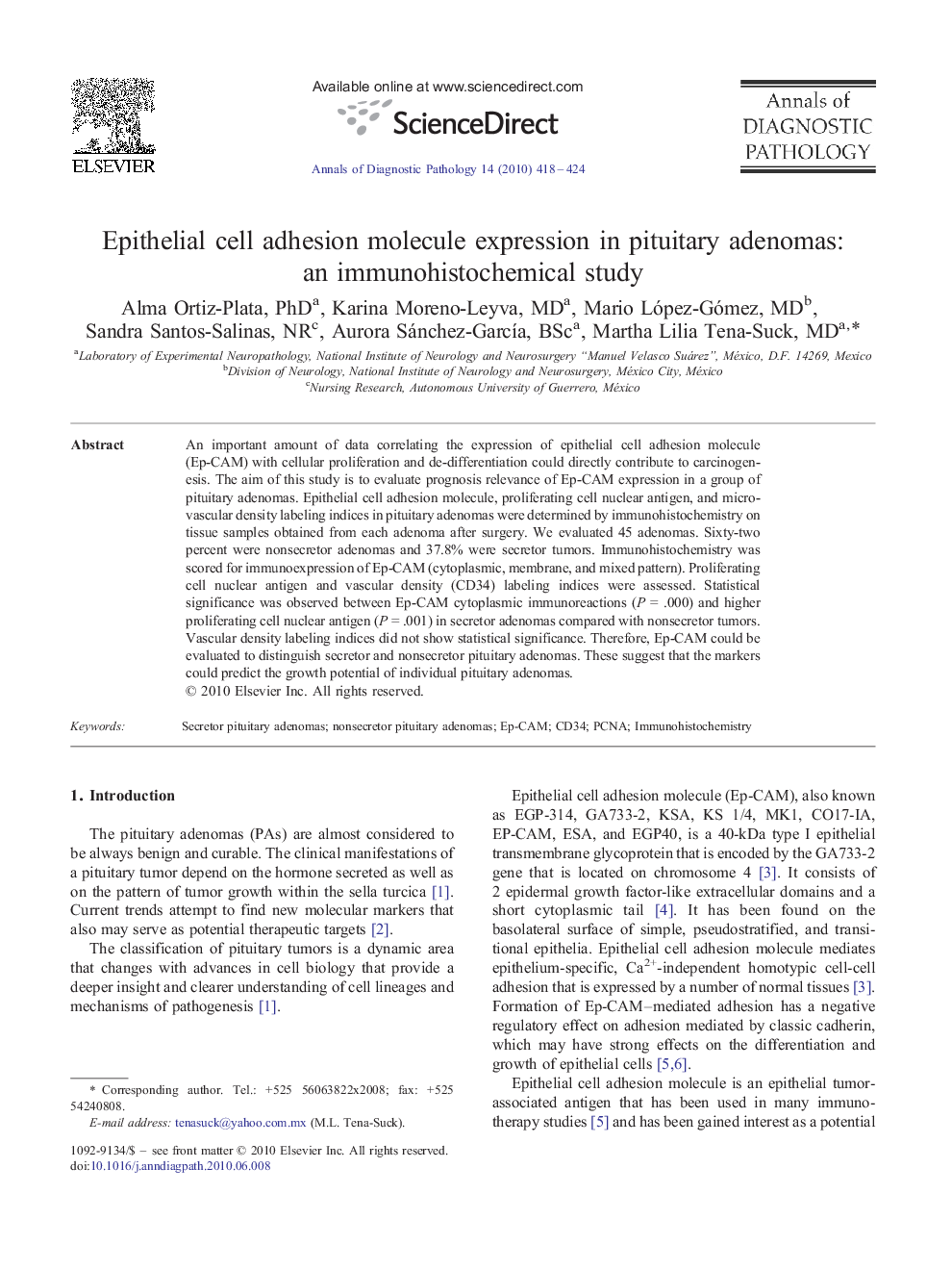| Article ID | Journal | Published Year | Pages | File Type |
|---|---|---|---|---|
| 4129958 | Annals of Diagnostic Pathology | 2010 | 7 Pages |
An important amount of data correlating the expression of epithelial cell adhesion molecule (Ep-CAM) with cellular proliferation and de-differentiation could directly contribute to carcinogenesis. The aim of this study is to evaluate prognosis relevance of Ep-CAM expression in a group of pituitary adenomas. Epithelial cell adhesion molecule, proliferating cell nuclear antigen, and microvascular density labeling indices in pituitary adenomas were determined by immunohistochemistry on tissue samples obtained from each adenoma after surgery. We evaluated 45 adenomas. Sixty-two percent were nonsecretor adenomas and 37.8% were secretor tumors. Immunohistochemistry was scored for immunoexpression of Ep-CAM (cytoplasmic, membrane, and mixed pattern). Proliferating cell nuclear antigen and vascular density (CD34) labeling indices were assessed. Statistical significance was observed between Ep-CAM cytoplasmic immunoreactions (P = .000) and higher proliferating cell nuclear antigen (P = .001) in secretor adenomas compared with nonsecretor tumors. Vascular density labeling indices did not show statistical significance. Therefore, Ep-CAM could be evaluated to distinguish secretor and nonsecretor pituitary adenomas. These suggest that the markers could predict the growth potential of individual pituitary adenomas.
